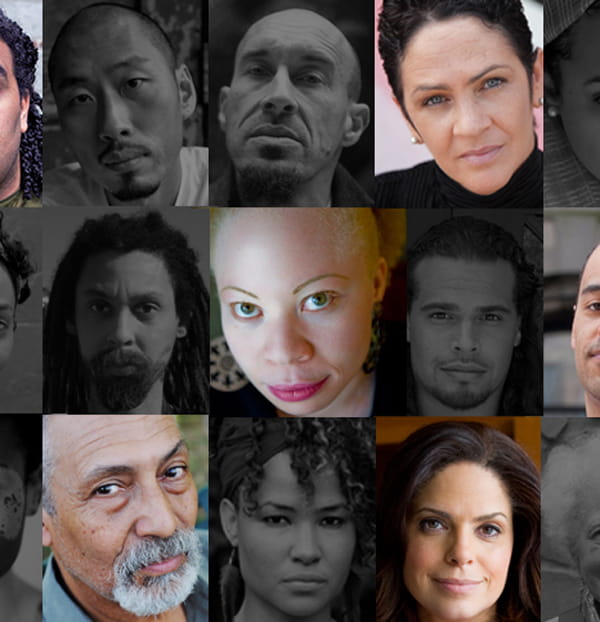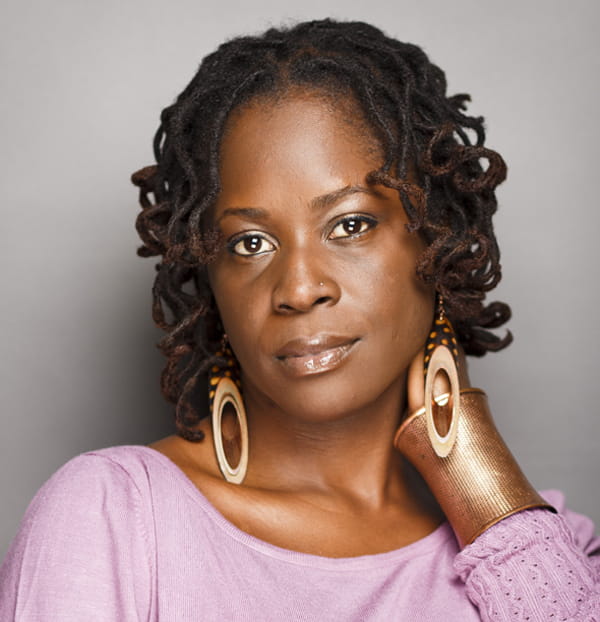New Book by Drexel’s Dr. Yaba Blay Explores Racial Identity and Skin Color Politics

- Bolstered by Research Consortium with Drexel, Jefferson’s Sidney Kimmel Cancer Center Earns NCI Comprehensive Cancer Center Designation
- No link between acetaminophen use during pregnancy and children's autism risk
- Drexel Recognizes Gregory E. Deavens, CPA, CGMA as Business Leader of the Year
- $15 Million Gift from Howley Foundation Expands Drexel Scholarship Program for Local Graduates

What does it mean to be Black? Is Blackness a matter of biology or consciousness? What determines who is Black and who is not? A new book by Dr. Yaba Blay, an assistant professor and co-director of the Africana Studies program in Drexel University’s College of Arts and Sciences, seeks to challenge narrow perceptions of what Blackness is and what it looks like.
The book, entitled (1)ne Drop: Shifting the Lens on Race, combines candid narratives and photos of 60 contributors from 25 different countries, providing a living testimony to the diversity of Blackness. It is intended to spark dialogue about the intricacies and nuances of racial identity and the influence of skin color politics.
The book is part of Blay’s larger, multi-platform project called (1)ne Drop – a reference to the “one-drop rule” from the early 1900s that held that anyone with 1/32 of “African Black blood” was Black.
The project, which includes an online and traveling exhibition, ultimately seeks to raise social awareness and inspire community conversation about the complexities of Blackness as both an identity and a lived reality.
The project was the inspiration behind “Who is Black in America?”, the fifth installation of CNN’s Black in America television documentary series with Soledad O’Brien in 2012, on which Blay served as a consulting producer.
[iframe src="http://player.vimeo.com/video/71207268" width="500" height="281" frameborder="0" webkitAllowFullScreen mozallowfullscreen allowFullScreen]
“In recent history, many Americans have used the term ‘post-racial’ to describe the state of current U.S. race relations, somehow suggesting that we have ‘gotten over race’ or that we no longer have racial issues,” said Blay. “What (1)ne Drop demonstrates is that concerns about race and what ‘box’ people fit into are as important now, as it was when the country instituted the one-drop rule.”

|
Dr. Yaba Blay is an assistant professor and co-director of Drexel's Africana Studies program |
The book is scheduled for release on Black Friday, Nov. 29, from Blay’s recently launched independent press, BLACKPrint Press. It will be available for pre-sale at www.blackprintpress.com from Aug. 1 through Aug. 31.
A launch party will take place at The Painted Bride Art Center (230 Vine St.) on Nov. 29. The full (1)ne Drop traveling exhibition will be on display at The Painted Bride from Nov. 1 – Dec. 21. A reading and book-signing with Blay and other contributors will also take place at The Painted Bride on Nov.10, as part of the annual First Person Arts Festival.
"(1)ne Drop offers an eye-opening look at issues that many of us too often take for granted,” said Amy DuBois Barnett, editor in chief of Ebony magazine. “Blay broadens our ideas about what counts as Black and challenges readers to rethink Blackness not only as a category but as an experience. As a biracial Black woman, I think this book is not only a must-read but a must-share.”
Actor Nicole Ari Parker said, “This book reveals that even though racism has a stronghold on our bodies and minds, a healing is at hand. People everywhere are taking the time to learn about and claim the fullness of themselves, one drop at a time.
Blay broadens our ideas about what counts as Black and challenges readers to rethink Blackness not only as a category but as an experience.
"With each page, another tablecloth in the proverbial Big House is shaken off, and the crumbs of our systematically dismantled identity are powerfully, lovingly and proudly pieced back together, all over the world.”
Blay received her doctorate in African American studies and a graduate certificate in women’s studies from Temple University in 2007. Her research interests include skin bleaching, the politics of Black embodiment (skin color/hair), Black identity, Africana cultural aesthetics and aesthetic practices, issues of gender in Africa and the Diaspora and global Black popular culture.
Among her many publications, Blay’s ethnographic case study entitled “Pretty Color and Good Hair: Creole Women of New Orleans and the Politics of Identity” is featured as a chapter in the Hampton Press anthology Blackberries and Redbones: Critical Articulations of Black Hair/Body Politics in Africana Communities (2010). Blay is the recipient of a 2010 Leeway Foundation Art and Change Grant. For more information, visit www.yabablay.com.
In This Article
Contact
Drexel News is produced by
University Marketing and Communications.
